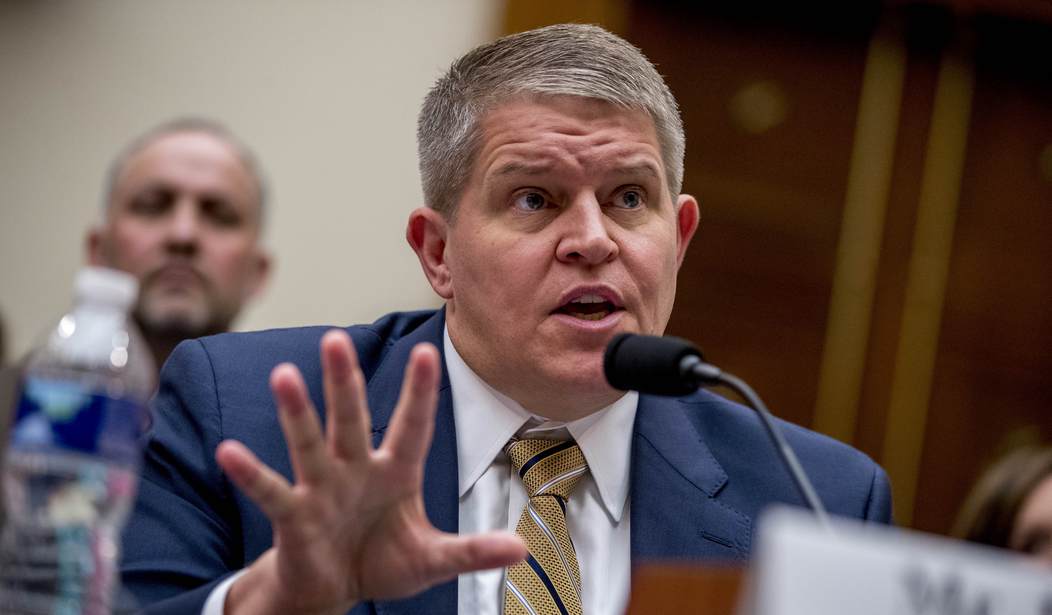What’s the one commonality in David Chipman’s post-ATF career? Earning money advocating for things that don’t do much to make us safer. By now I’m sure that you’re aware of Chipman’s time at Mayors Against Illegal Guns and Giffords, but Joe Biden’s pick to head up the ATF also spent almost three years at the company ShotSpotter, where he was in charge of North American sales of the product that supposedly helps track and trace the sound of gunfire.
As it turns out, however, a new report from the city of Chicago’s Office of Inspector General has found that the technology “rarely leads Chicago Police Department (CPD) officers to evidence of gun-related crimes and is used to justify overpolicing in the primarily Black and brown communities” where they’ve been put in place.
The City of Chicago Office of Inspector General’s (OIG) Public Safety section analyzed CPD and emergency management data between the beginning of 2020 and this May and found that only 9.1 percent of dispatches by the technology resulted in evidence of a gun-related criminal offense.
Among the 50,176 dispatched alerts in that time frame, only 1,056 appeared to indicate that an investigatory stop was the direct result of ShotSpotter.
“Our study of ShotSpotter data is not about technological accuracy, it’s about operational value,” Deputy Inspector General for Public Safety Deborah Witzburg said in a statement.
“If the Department is to continue to invest in technology which sends CPD members into potentially dangerous situations with little information — and about which there are important community concerns — it should be able to demonstrate the benefit of its use in combatting violent crime,” she added. “The data we analyzed plainly doesn’t do that.”
Chipman had already left Public Safety Solutions, the company behind ShotSpotter, by the time the city of Chicago signed a $33-million dollar contract in August of 2018, but his LinkedIn profile touts the fact that while he was there, “Bookings grew over 200% as compared to the previous 2 years” and “Domes of protection were erected to shield 145 new square miles of coverage.”
Sounds impressive, until you read the OIG report, which makes it clear that the technology is of little use in actually preventing violent crime or even helping to lead to arrests in most cases.
Even worse for Chipman, who’s already come under criticism for alleged racial bias against black ATF agents, anti-violence activists in Chicago say the ShotSpotter system leads to discrimination against communities of color.
“ShotSpotter doesn’t make me, my friends, or my family safer. It makes us less safe and, in fact, makes us fear for our lives each time a ShotSpotter alert sends a police officer rushing into our neighborhood,” Anderson, a member of the Little Village community where [12-year old Adam] Toledo was killed, said at a protest last month. “If we want to really stop gun violence in our city, the answer isn’t to rely on flawed and costly tech.”
The OIG’s report notes that officer perceptions of the frequency of ShotSpotter alerts may be changing their policing behavior. The report includes a handful of examples of officers using perceived gun violence frequency to justify pat-downs.
So, sandwiched between his stints at Mayors Against Illegal Guns and Giffords, David Chipman spent almost three years pitching a product that doesn’t do much to prevent crime but does lead to more stop-and-frisks of young black men, even if the only evidence of their criminal behavior comes from the sounds captured by high-powered microphones. Does this sound like a guy who should be heading up the Bureau of Alcohol, Tobacco, Firearms, and Explosives?
At this point, the real question isn’t whether or not red-state Democrats like Joe Manchin, Jon Tester, and Angus King will end up supporting Chipman’s nomination as ATF director, but why Chipman still has the support of the 47 other Democrats in the U.S. Senate.









Join the conversation as a VIP Member